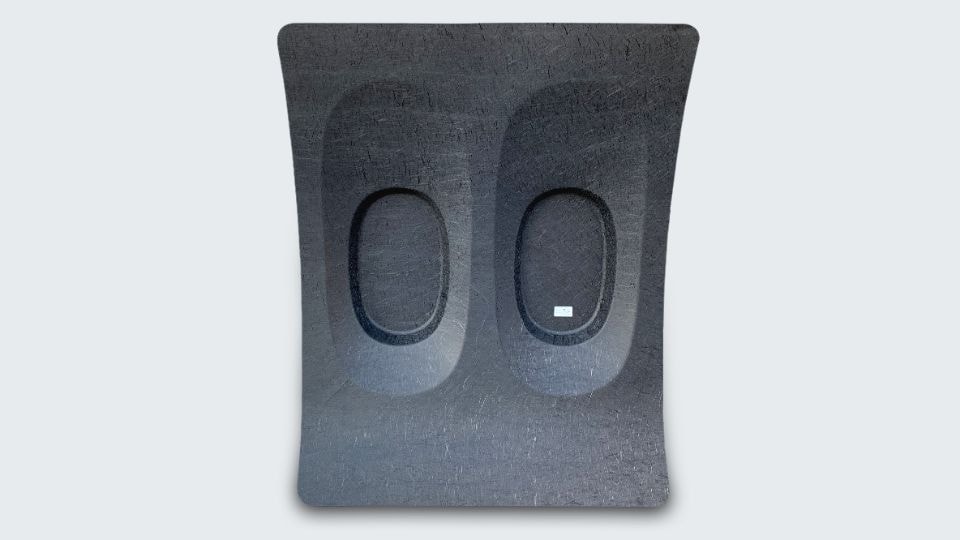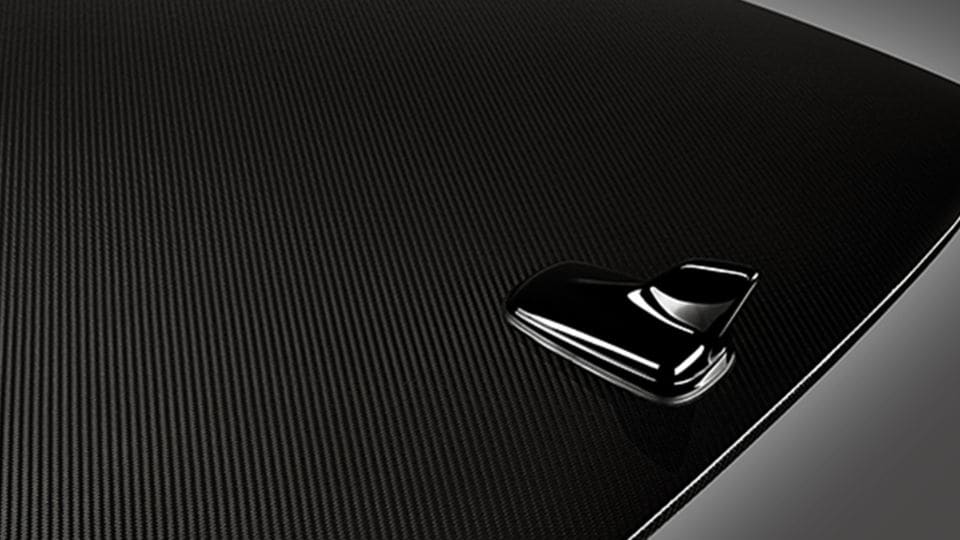KyronTEX™ case study summary
We are working with Boeing to help them process and evaluate KyronTEX™ thermoplastic composites for sidewall panels on their aircraft.
MCAM introduced Boeing to our new recycled carbon fiber composite KyronTEX™ and is advising them on process technologies to utilize our product.
Industry: Aerospace Industry
Solution: A carbon fiber composite that reduces carbon footprint by using recycled carbon fibers rather than virgin carbon fibers.
Products: KyronTEX™
Goals: Cost-effective, more streamlined processes using sustainable materials while meeting Boeing’s quality standards and aerospace industry specifications.
Meeting environmental targets in Aerospace with KyronTEX™
Driven by consumer demand and industry standards, Boeing is committed to reducing the amount of aerospace waste going to landfills. One way they are working towards this goal is by replacing traditional materials with more sustainable, recycled materials without compromising on performance.
Boeing is looking to improve resource efficiency in the production of the interior panels of their aircraft by transitioning from a traditional thermoset process to one utilizing thermoplastics.
To do so cost-effectively and without compromising on performance, they need knowledge that extends beyond the traditional material options and the process technology used to manufacture them. The innovative KyronTEX™ thermoplastic composite technology platform may enable Boeing to achieve these objectives.

More innovative materials, more sustainable processes
Mitsubishi Chemical Advanced Materials introduced Boeing to our recycled carbon fiber material – KyronTEX™ – an innovative thermoplastic composite technology platform that requires less resource-intensive manufacturing to achieve the desired part performance. We worked with them to fabricate prototype cabin sidewall panels from this material.
Between recycled sourcing and fabrication efficiencies, the use of KyronTEX™ composite in cabin sidewall panels may contribute to a significant reduction in emissions at every stage of the part’s lifecycle – from raw material through manufacturing.
We have provided Boeing with end-to-end support for this case study – working with them on our processing equipment and sharing our technical knowledge around fabricating thermoplastic composite parts to facilitate their efforts in reducing waste and costs.
If successful, utilization of our recycled KyronTEX™ composite would enable Boeing to stay at the forefront of sustainable practices within the Aerospace Industry.

Driving sustainability through innovation
Thanks to our simplified composite technology processes and innovative recycled KyronTEX™ material, we are helping Boeing satisfy both consumer demands and industry pressure to reduce the amount of aerospace waste going to landfills associated with their aircrafts.
- Improved processing systems
- Maintained performance
- Reduced carbon footprint

From raw materials to scrap collection and recycling, our Composites Toolbox helps to bring market-driving, scalable innovations to life across a range of industries and previously unfeasible applications.
We partner with OEMs and engineers, giving them the tools they need to successfully replace traditional materials with cost-effective, future-ready carbon fiber composite materials.
Rewriting the manufacturing process with KyronTEX™
From test material and prototype design to final improved product.
Our composites experts shared KyronTEX™, with our partner Oribi and together we helped realign their production processes and create a more cost-effective, better-quality motorcycle helmet.

Developing scalable and cost-effective car body panels with carbon fiber prepregs
Streamlining processes to reduce emissions and production costs.
Our composites experts helped a leading automotive manufacturer apply a highly flexible prepreg to lower production costs and emissions in producing and painting body panels for their vehicles.

More carbon fiber, less carbon footprint
CarboNXT recycled carbon fiber products are made from reclaimed scrap materials in a pyrolysis process, offering the strength and lightness of virgin carbon fiber with lower emissions and greater circularity.

Looking for something specific? Get in touch with our specialist teams by filling in the contact form. We’re ready to meet your next challenge.
Contact us

